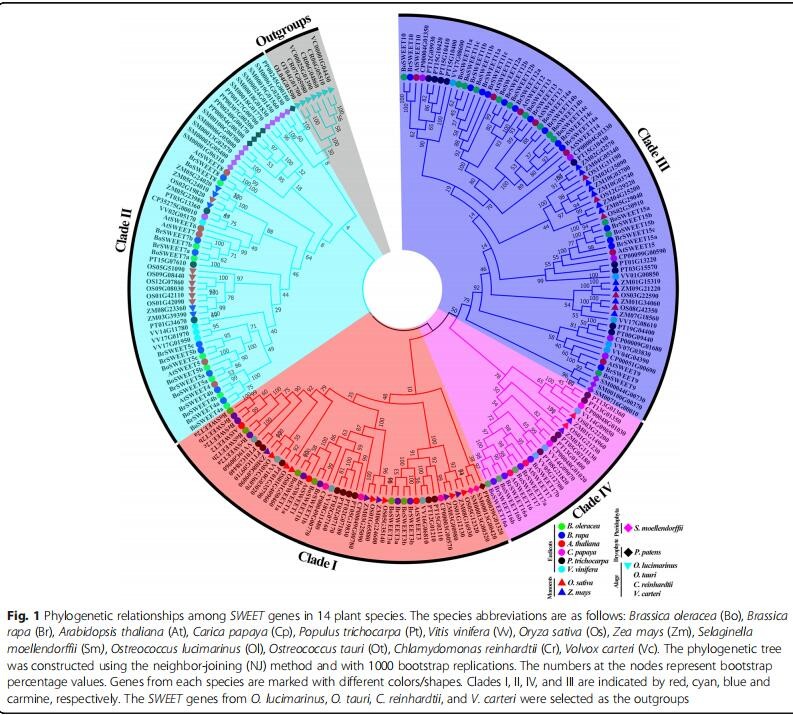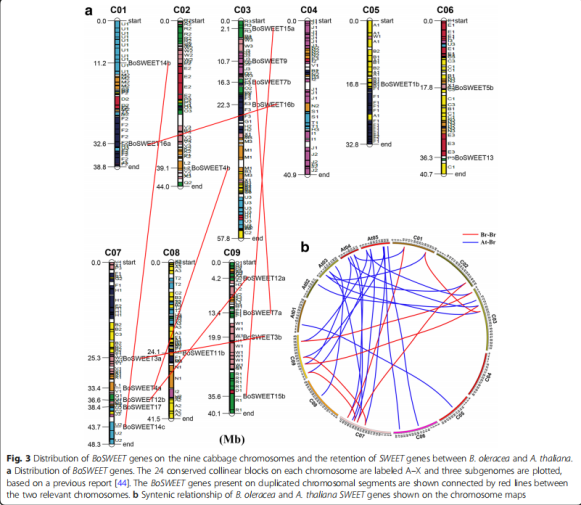Background: The SWEET proteins are a group of sugar transporters that play a role in sugar efflux during a range of biological processes, including stress responses. However, there has been no comprehensive analysis of the SWEET family genes in Brassica oleracea (BoSWEET), and the evolutionary pattern, phylogenetic relationship, gene characteristics of BoSWEET genes and their expression patterns under abiotic and biotic stresses remain largely unexplored.
Results: Thirty BoSWEET genes were identified and divided into four clades in B. oleracea. Phylogenetic analysis of the BoSWEET proteins indicated that clade II formed first, followed by clade I, clade IV and clade III, successively. Clade III, the newest clade, shows signs of rapid expansion. The Ks values of the orthologous SWEET gene pairs between B. oleracea and Arabidopsis thaliana ranged from 0.30 to 0.45, which estimated that B. oleracea diverged from A. thaliana approximately 10 to 15 million years ago. Prediction of transmembrane regions showed that eight BoSWEET proteins contain one characteristic MtN3_slv domain, twenty-one contain two, and one has four. Quantitative reverse transcription-PCR (qRT-PCR) analysis revealed that five BoSWEET genes from clades III and IV exhibited reduced expression levels under chilling stress. Additionally, the expression levels of six BoSWEET genes were up-regulated in roots of a clubroot-susceptible cabbage cultivar (CS-JF1) at 7 days after inoculation with Plasmodiophora brassicae compared with uninoculated plants, indicating that these genes may play important roles in transporting sugars into sink roots associated with P. brassicae colonization in CS-JF1. Subcellular localization analysis of a subset of BoSWEET proteins indicated that they are localized in the plasma membrane.
Conclusions: This study provides important insights into the evolution of the SWEET gene family in B. oleracea and other species, and represents the first study to characterize phylogenetic relationship, gene structures and expression patterns of the BoSWEET genes. The identified potential candidate BoSWEET genes involved in the responses to chilling and clubroot disease stresses provides valuable information for further genetic improvement of cabbage.




